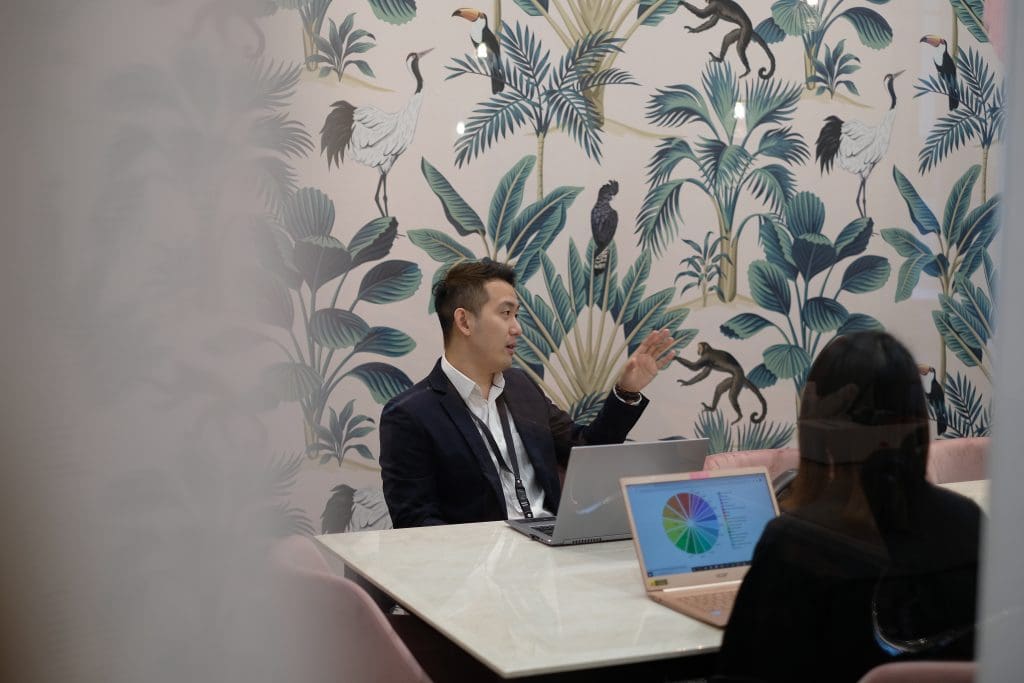Key Turning Points for Your Business in 2020 | Coworking Space KL

As businesses step into the post-COVID era, it is important to find the balance between what worked before and what needs to be adapted in order to succeed in the next new normal we are about to face.
A foundation of organizational stability is what provides people with a sense of confidence, security, and optimism during times of disruptive change in the workplace. The initial steps for companies to carry out is to commit themselves to stability in order to achieve agility and resilience by adapting to what the current economic demands represent.
With that in mind, we’ve listed out key turning points pointers that business owners can use to stay afloat and be well prepared for 2021!
COWORKING SPACE KL: TRADITIONAL ORGANIZATIONAL STRUCTURE WILL NO LONGER WORK THESE DAYS

We all have those days where our calendars are swamped with day-to-day meetings that generally don’t produce any results or informed directions on what to do next. What organizations can do differently is group together teams to tackle a defined mission where decisions can be made with a basis of value-creating and value-protecting opportunities by these agile units.
According to the McKinsey survey, agile companies are more decentralized and depend less on top-down, command-and-control decision-making performed significantly better. Agile teams are allowed to make most day-to-day decisions whereas upper management will still make the major decisions. This unfolds a healthy ecosystem that supports flatter decision-making structures where crises can be adopted in faster and more flexible than traditional ones.
COWORKING SPACE KL: OPEN COMMUNICATION WITH YOUR EMPLOYEES

In the throes of significant change, apart from the situation being overwhelming for companies, employees are battling their own emotions as well such as questioning their job security, not knowing what tasks to tackle and etc. This can prompt people to make poor decisions that range from downplaying the threat to giving in to panic.
As a leader, priorities need to be set in order to promote more effective coping mechanisms that help the team focus on what matters most during a crisis. One way to do that is openly communicating with your employees on the state that the company is currently in and be transparent on what their next move or future decision may look like. An outlet like this can help narrow down what tasks and functions are critical in keeping the business running as well as maintaining employee’s health and safety as they are now aware of the state the company is in – making them well prepared for what’s to come.
Leaders have to identify top priorities and communicating to the team to prevent the potential for new distractions and miscommunication.
COWORKING SPACE KL: SET UP A CROSS-FUNCTIONAL COVID-19 RESPONSE TEAM

The pandemic has resulted in disruptions across all the different corporate domains and sectors of the economy. A cross-functional team needs to be created by management in order to manage the organization’s response to the pandemic.
The team has to be on the same page where the latest strategies that can be used across the organization are being discussed. Medium and longer-term scenarios that will affect the company as a whole are required to be identified. Our suggestion is to assemble a dual-focus approach to create both short-term and longer-term actions in order to tackle risks that might emerge from different scenarios.
COWORKING SPACE KL: RE-ALLOCATION OF RESOURCES

Leaders are engaged to promote responsible capital allocation practices supporting a company’s sustainable value creation. This creating severe pressures on companies and forcing important and difficult capital-related decisions. Leaders should come out with a policy framework that addresses key business priorities, the company’s financial health and the linkage of capital allocation to the company’s overall mission, strategy and business model as well as guide the determination as to what is judged to be the right balance of stakeholder interests.
One of the many pain points businesses faced during the global health crisis is leaving their offices expensively vacant. The ability to scale up and down has been shown to be invaluable to businesses as they want to be able to be agile and react to world events. Which makes the evidence clear – organizations need to act now to protect themselves against future uncertainty.
COWORKING SPACE KL: FLEXIBLE WORKSPACE FOR BUSINESSES – ULTRA FLEX SOLUTION
Even if businesses start to pick up, most of them are unwillingly prone to commit to long-term office leases demanded by traditional landlords – shifting them to look into more flexible alternatives.
Hence, tying the knot with a long-term contract especially on your coworking space kl lease can potentially derail the sustainability of your business. To help keep your business agile and competitive, Colony Coworking Space KL has come up with the ultimate flexible lease for business: THE ULTRA FLEX SOLUTION.
Our latest solution aims to provide businesses the upper hand when it comes to engaging in an office lease – giving you full liberty to set and choose your own terms. From membership freeze to quick refunds and minimal deposits, our solution aims to provide the ultimate flexibility for businesses to retain cash flow and keep liabilities low.
If you would like to learn more about our Ultra Flex Solution, you can click here for the full breakdown, or reach out to us via email at ask@colony.work or call at +60 18-213 8086 to find out more about our Coworking Space KL plans!
RELATED COWORKING SPACE KL ARTICLES:
Coworking Space KL: Tips to Stay Safe at Work during COVID-19





